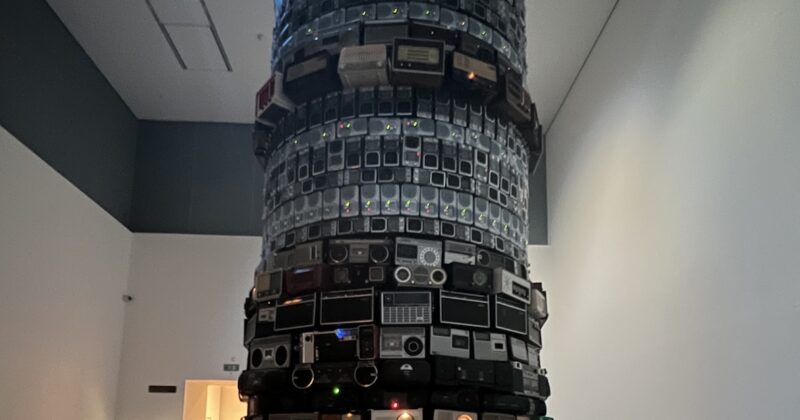I’d like to feel that every reader of this blog gets value for money, so today I’m going to give you a real bonus and hand back the fifteen or so hours it would take to read Nexus, the latest 500 page outpuring from Yuval Noah Harari, author of Sapiens and the sort of person who can describe himself as ‘one of the world’s most influential public intellectuals today’ without blushing.
Nexus is advertised as ‘the story of how information networks have made, and unmade, our world’ but (from the extract breathlessly promoted in the Guardian) is yet more rehashed anecdata linked together by barely-researched references to Phaethon crashing the sun god’s chariot and Goethe’s sorcerer’s apprentice, all based around massively optimistic projections of the capabilities of AI and an underlying belief that it is “an unprecedented threat to humanity because it is the first technology in history that can make decisions and create new ideas by itself”. It’s the sort of book that treats as credible the latest of scaremongering survey of AI researchers in which ‘more than a third gave at least a 10% chance of advanced AI leading to outcomes as bad as human extinction’ as if the assessment can have any useful relevance.
Harari goes big on the significance of one particular move made by DeepMind’s AlphaGo in its matches against Lee Sedol, the mythical ‘move 37’. He sees this as “an emblem of the AI revolution for two reasons. First, it demonstrated the alien nature of AI…. second, move 37 demonstrated the unfathomability of AI”. This sort of pseudo-mystical nonsense may be why his books sell so well, but they have no connection to the rather banal reality of how AlphaGo played, and they carry with them the implication that somehow the software had an awareness of what it was doing. AlphaGo no more ‘knows’ it is playing the game of Go than your air fryer ‘knows’ you’re cooking chips and that you need to shake them half way through.
If you really want to understand what’s going on when something like AlphaGo makes an odd move, try Neil Lawrence’s new book instead – it’s a bit hard going at times, but it’s written from a humane perspective by a committed computer scientist who has built the systems he’s talking about (including at Amazon). Lawrence describes the conceptual space into which the game of Go has been compressed in order to allow a machine to execute the moves, and explains why some areas of that space will have been unexplored by human players. There’s no mysticism, just the algorithm doing what it was told to do.
Harari may assert that ‘computers are not yet powerful enough to completely escape our control or destroy human civilisation by themselves’ but that’s not something we should base our regulatory systems on because it’s not going to happen. What is surprising is that enough people will want to wade through this excitable prose to give themselves a vicarious thrill, and what’s depressing is that their understanding of these transformative technologies will be shaped by it. And of course rent-a-quotes like Rory Stewart, Stephen Fry and Mustafa Suleyman are there with blurbs to convince the unwary to pick up or download it.
So.. save your reading hours for something worth the effort. And if I haven’t convinced you then you might also enjoy James Ball’s review in The Spectator, which notes that Nexus contains “the kind of profundity typically experienced by teenage weed-smokers the first time they wonder aloud whether the ‘red’ they see is the same as the ‘red’ you do.” I couldn’t agree more.
A final note: The survey he refers to is here. It was a self-selected survey with a 15% response rate. The paper notes: “Out of the 20,066 emails we contacted, 1,607 (8%) bounced or failed, leaving 18,459 functioning email addresses. We received 2,778 responses, for a response rate of 15%. 95% of these responses were deemed ‘finished’ by Qualtrics. Because participants received randomized subsets of the questions, the number of responses is far less than 2,778 for most individual question”.
